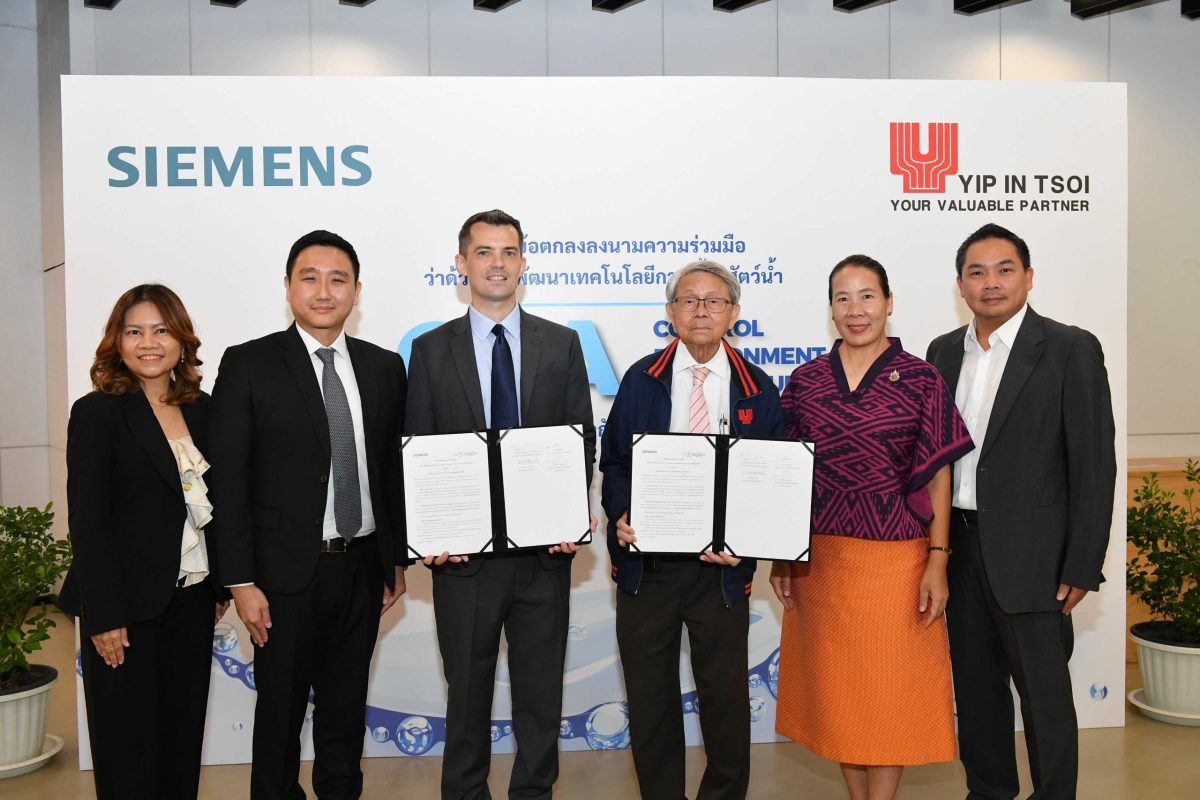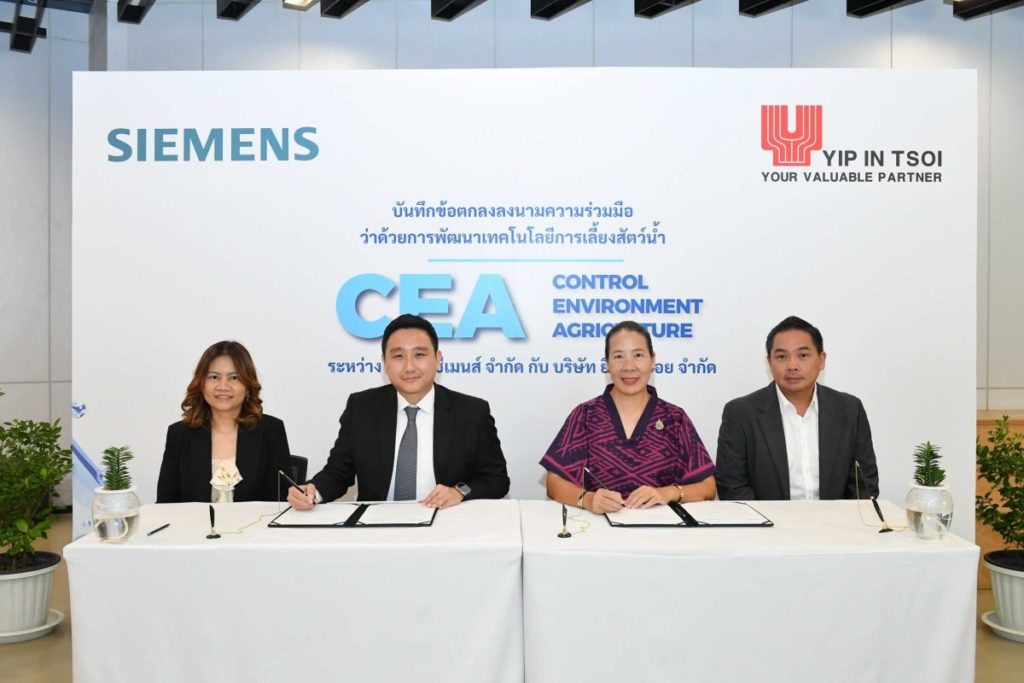- Yip In Tsoi and Siemens signed a memorandum of understanding (MoU) to collaborate on developing controlled environment aquaculture technology. The agreement includes the transfer of Siemens’ expertise in Controlled Environment Agriculture technology (CEA) to Yip In Tsoi’s personnel through the implementation of Siemens’ CEA solutions in a fish farm in Ayutthaya province.
- Integrating Siemens’ cutting-edge CEA solutions together with Yip In Tsoi’s robust IT expertise, the collaboration aims to enhance the data collection process and transparency in the fish farm, resulting in greater efficiency and better quality of aquatic crops with trusted traceability.
- The solutions will also optimize the use of water and energy resources, promote biocircularity, supporting Thailand’s pursuit of sustainable agriculture.
One of the main challenges for land-based fish farm operators in Thailand has been predicting and controlling production. Recently, climate change has worsened this challenge, causing disease outbreaks that affected the growth rates of aquaculture crops. Fish farm operators are faced with increased costs in feed, care, and energy, among other rising operational costs.
A significant part of the problem stems from a lack of accurate and timely data for decision-making, often leading to guesswork, resulting in mistakes that impact overall production, waste resources, and incur unnecessary expenses.
CEA technology for the aquaculture industry can effectively address these challenges. Key technologies covered in this collaboration include:
Automation systems that collect real-time data from various systems within the farm, such as data from sensors in fish ponds, data from environmental control systems, and display the integrated data on a dashboard.
Digitalization technology that analyzes the crop’s behavior, optimizes feeding, and detects abnormalities among other tracking features.
Water and energy management systems, tailored to the specific needs of the fram, enable stable and optimum use of water and electricity. In addition, the systems support biocircularity within the farm, for example, the recycling of water for other uses, maximizing resource efficiency and advancing sustainability.
The real-time, centralized, data from these systems provides comprehensive insights, enabling fish farm operators to monitor environmental factors more effectively and respond quickly to fluctuations in farm conditions, thereby reducing resource waste and eventually increasing yields.
Additionally, CEA technology, with its controlled environment, can be used to increase production by establishing farms in locations previously unsuitable for farming, thereby enhancing future food security.
Under this MoU, Siemens, a global expert in CEA technology with a portfolio of successful projects, will deploy its CEA solutions in Yip In Tsoi’s fish farm and, in the process, transfer the know-how through practical implementation as well as formal training.
Morakot Yipintsoi, President and CEO of Yip In Tsoi Co., Ltd., said, “We want to help farmers in Thailand have a better life by using our technology to reduce the many risks they can’t control. Our main goal is to support aquaculture farmers in earning a stable and sustainable income. By applying our IT innovations and knowledge, we are developing ways to raise different types of aquatic species at Yip In Tsoi’s Research and Development Center. This partnership with Siemens will definitely transform agriculture, making it more secure and sustainable.” In Tsoi said: [to be added]
Ross Conlon, President and CEO of Siemens Limited said ” Siemens is committed to supporting our partner, Yip In Tsoi, in this aquaculture project to promote sustainable fish farming in Thailand. We believe that technology is the driver for sustainability. Our CEA solutions combine the latest innovations and technologies, such as AI, edge computing, blockchain, and machine learning, that will help increase efficiency in the agriculture sector while lowering carbon emissions. This collaboration with Yip In Tsoi will pave the way to sustainable agriculture in Thailand as well as increase the country’s food security in the near future.”

